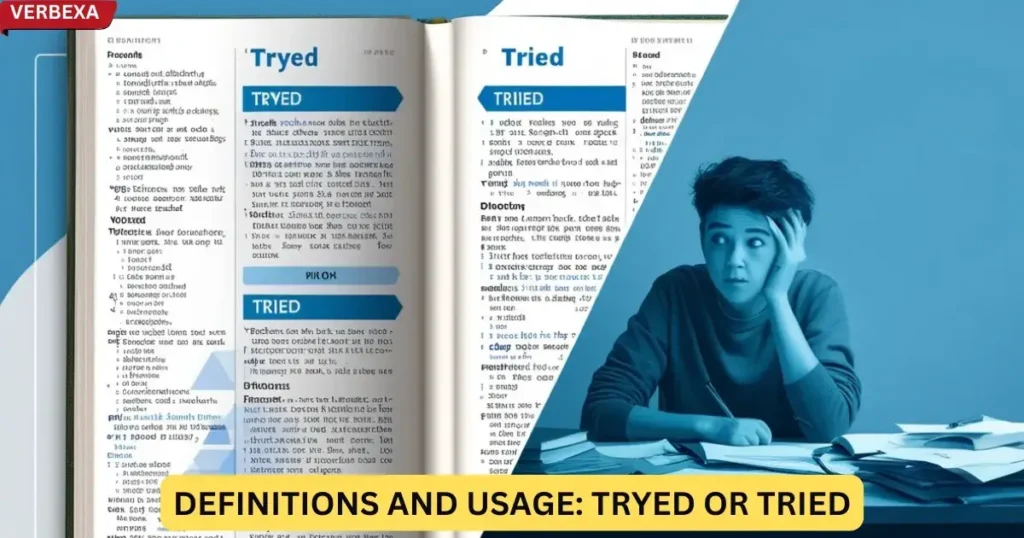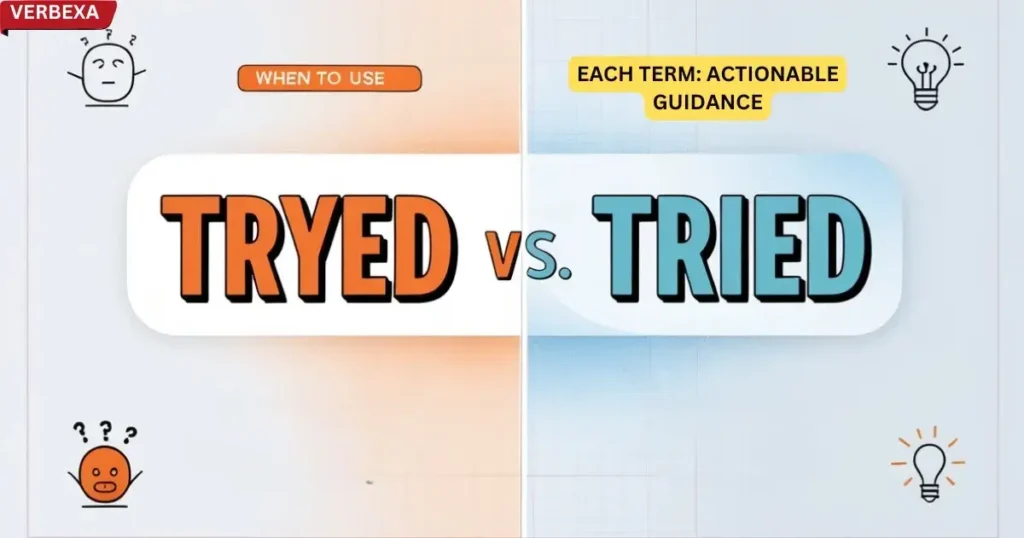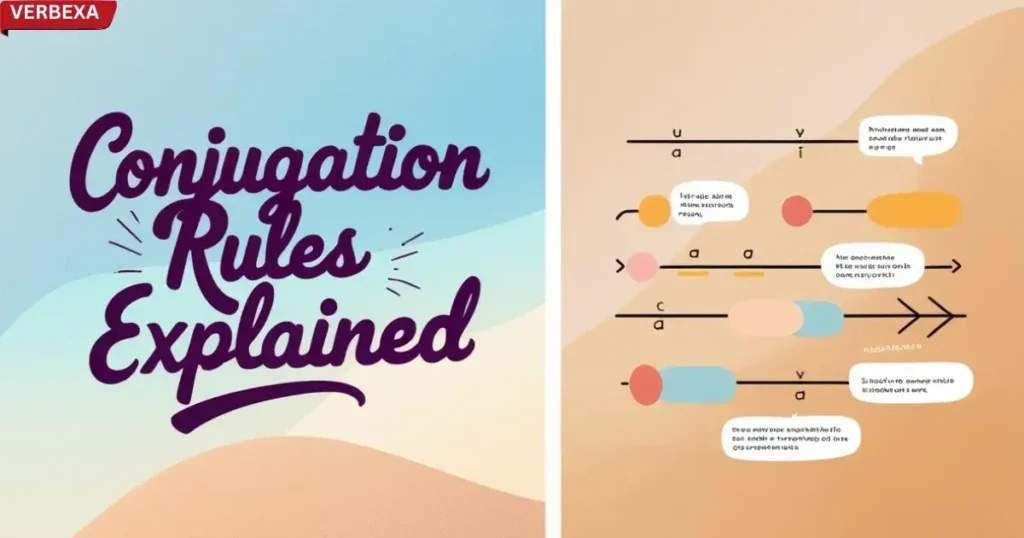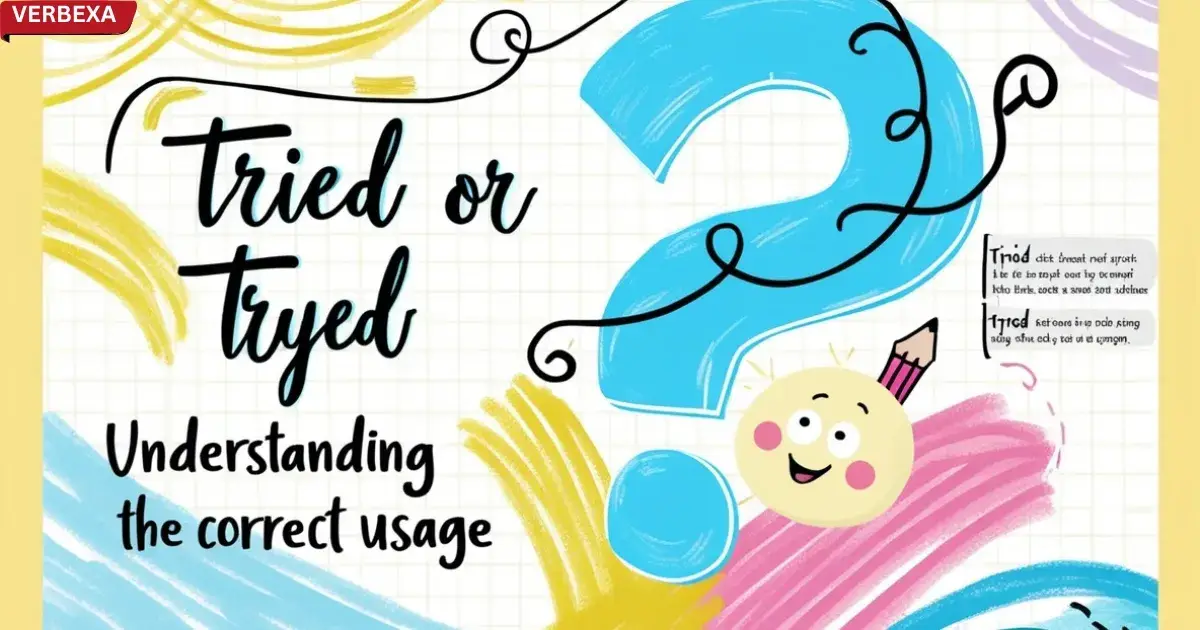In the vast landscape of English language usage, few grammatical nuances create as much confusion as the words tried and tryed. Many writers, students, and even professionals find themselves second-guessing the correct spelling and usage of these terms. Tryed or tried is a common point of uncertainty that can undermine writing confidence and language accuracy.
Imagine sending an important email or submitting a school essay with a glaring spelling mistake. The question of “tried or tryed” might seem trivial, but the incorrect use of “tryed” can immediately signal a lack of writing precision. This article will dive deep into the English grammar rules that govern the correct usage of “tried” and explore why “tryed” is never the right choice.
Key Takeaways
- Always use tried, never tryed
- Follow English language rules for verb conjugation
- Proofread to catch potential spelling mistakes
Definitions and Usage: Tryed or Tried

Tried: The Correct Past Tense Form
Tried is the correct form of the past tense and past participle of the verb “try.” It follows standard English language rules for verb conjugation, specifically the rule for verbs ending in “y”.
Examples of Correct Usage
- She tried to solve the complex puzzle.
- They have tried multiple approaches to resolve the issue.
- I tried calling him several times yesterday.
Tryed: A Common Misspelling
Tryed is simply an incorrect spelling of tried. It does not exist in standard English grammar and should never be used in formal or informal writing.
Synonyms: Expanding Your Vocabulary
Tried Synonyms
- Attempted
- Endeavored
- Tested
- Experimented
- Attempted
- Sought
- Strived
- Probed
- Explored
- Investigated
Synonyms for Tryed (Non-Existent)
Since tryed is not a real word, it has no legitimate synonyms.
Comparison Table: Tried vs Tryed
| Aspect | Tried | Tryed |
|---|---|---|
| Grammatical Correctness | Correct past tense form | Incorrect spelling |
| Usage in Writing | Universally accepted | Never acceptable |
| Verb Conjugation | Follows standard English language rules | Violates spelling rules |
| Pronunciation | /traɪd/ | No standard pronunciation |
When to Use Each Term: Actionable Guidance

How to Use Tried
- In past tense sentences describing completed actions
- In perfect tenses (have tried, had tried)
- When describing past attempts or efforts
When Tryed is Absolutely Incorrect
- Tryed should never be used in any context
- Always replace with tried
- Applicable in emails, school essays, professional communications, and casual writing
Everyday Usage Examples
Correct Usage Examples
- “I tried the new recipe last night, and it was delicious.”
- “She has tried multiple strategies to improve her skills.”
- “They tried to understand the complex instructions.”
Incorrect Usage Examples (to Avoid)
- ❌ “I tryed to call you earlier.”
- ❌ “He tryed his best to finish the project.”
Conjugation Rules Explained

The transformation of “try” to tried follows a specific spelling rule:
- For verbs ending in “y” preceded by a consonant, change “y” to “i” and add “ed”
- Try → Tried
- Fly → Flew
- Cry → Cried
Conclusion: Mastering “Tried” and Avoiding “Tryed”
Understanding the difference between tried and tryed is crucial for confident and accurate communication. Tryed is never correct, while tried is the standard, grammatically sound past tense of “try”.
By mastering these subtle yet important grammar distinctions, you’ll enhance your writing accuracy and communicate more effectively.
Frequently Asked Questions
How to spell “tryed”?
There’s no correct spelling of “tryed.” The correct spelling is always “tried.”
How do you spell “tryed”?
“Tryed” is misspelled; the proper spelling is “tried.” It’s the past tense and past participle of “try.”
Is “tried” a correct word?
Yes, “tried” is a perfectly correct word. It’s the past tense and past participle of the verb “try.”
What does “very tried” mean?
“Very tried” means extremely fatigued or exhausted. It implies a significant level of tiredness.
What does “getting tried” mean?
“Getting tried” isn’t standard English. It might mean facing a trial or becoming increasingly tired.
What is the past tense of “tried”?
The past tense of “try” is “tried.” There’s no other past tense form for this verb.

This author is a passionate linguist and grammar enthusiast, dedicated to helping individuals master the art of language. With years of experience in teaching and editing, she brings clarity and precision to every sentence. Tina’s mission is to empower writers of all levels to express themselves with confidence and excellence.

